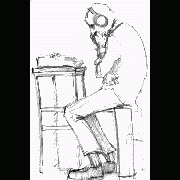Leaderboard
Popular Content
Showing content with the highest reputation on 12/31/2013 in all areas
-
Updated to v3.3.10.2. Fixed the issues with running on Windows XP RTM and Althon XP processors. Download it here. Complete list of changes: History2 points
-
I think execute could be used almost interchangeably with Eval in the example above, but I could be wrong. AFAIK you can use Execute to refer to a variable no matter what type it is...Object, Array, Control, etc. In this very confusing example I use Execute to perform data extraction from any size array. Local $arr[]=["Never","Gonna","Give","You","Up"] ConsoleWrite(_DynEnumArray($arr) & @CRLF) Local $arr[][]=[["Penn", "Teller"],["Gilbert", "Sullivan"],["Sonny", "Cher"],["Stone", "Parker"],["Fischbacher", "Horn"],["Plant", "Page"]] ConsoleWrite(_DynEnumArray($arr) & @CRLF) Local $arr[][][]=[[["All","Your"],["Base","Are"],["Belong","To Us"]],[["Is","This"],["The","Way"],["Back","Home"]]] ConsoleWrite(_DynEnumArray($arr) & @CRLF) Func _DynEnumArray(ByRef $array) If Not IsArray($array) then Return SetError(1,0,"") ;Make sure parameter IsArray Local $aDims[1][2]=[["ElementIdx","ElementCount"]] ;Create an array to track Source array dimensions and elements Local $sArrayContents = "" ;Create empty result string for Source array contents For $iX = 1 to UBound($array,0) ;Get Source array size and save in tracking array ReDim $aDims[$iX+1][2] $aDims[$iX][0]=0 $aDims[$iX][1]=UBound($array,$iX) Next Do ;Loop through Source array elements $var = "" For $iX = 1 to UBound($aDims)-1 ;Build array dimension string $var &= "[" & $aDims[$iX][0] & "]" Next $sArrayContents &= $var & " " & Execute("$array" & $var) & @CRLF ;Evaluate array dimension string and append contents to result string $aDims[UBound($aDims)-1][0] += 1 ;Increment last dimension element in tracking array For $iY = UBound($aDims)-2 To 1 Step -1 ;Increment dimension element in tracking array If $aDims[$iY+1][0] = $aDims[$iY+1][1] Then $aDims[$iY+1][0]=0 $aDims[$iY][0]+=1 EndIf Next Until $aDims[1][0]=$aDims[1][1] ;Loop until Source array element enumeration is complete Return $sArrayContents EndFunc I first learned about Execute >in this thread when I was dealing with using Object properties.1 point
-

Parellel 3.3.8 and 3.3.10 environments
DatMCEyeBall reacted to Melba23 for a topic
DatMCEyeBall, I would rather suggest: #AutoIt3Wrapper_Autoit3Dir= because then you can have as many versions available as you wish (I once had 4). But if you only have 2 versions, the SciTE4AutoIt3 Prod/Beta menu items and short-cut method is the easiest solution. M231 point -
Static & Global
DatMCEyeBall reacted to James for a topic
Global Const $SUP_DAWG = "I'm immutable! Come at me bro!" Global Static $SUP_HOMEBOI = "U wat blud? I'll mutable you in a minute" ; P.s, he won't because Const can't be changed.1 point -
1 point
-
Done..! Happy New Year and Merry Christmas1 point
-
1 point
-

What's the full extent of the usefulness of $Variable()
DatMCEyeBall reacted to martin for a topic
Here is an example where it could be argued that using variables for function names makes for simpler code. #include <ButtonConstants.au3> #include <EditConstants.au3> #include <GUIConstantsEx.au3> #include <StaticConstants.au3> #include <WindowsConstants.au3> #Region ### START Koda GUI section ### Form=C:\Users\Martin\Documents\MG AutoIt\play\varFunc1.kxf $Form2 = GUICreate("Form2", 376, 287, 538, 208) GUISetFont(10, 400, 0, "MS Sans Serif") $Input1 = GUICtrlCreateInput("", 80, 8, 121, 28) $Label1 = GUICtrlCreateLabel("Input", 32, 8, 40, 24) $Button1 = GUICtrlCreateButton("square", 232, 8, 107, 25) $Button2 = GUICtrlCreateButton("cube", 232, 50, 107, 25) $Button3 = GUICtrlCreateButton("square root", 232, 92, 107, 25) $Button4 = GUICtrlCreateButton("cube root", 232, 134, 107, 25) $Button5 = GUICtrlCreateButton("invert answer", 232, 176, 107, 25) $Input2 = GUICtrlCreateInput("", 80, 176, 121, 28, BitOR($GUI_SS_DEFAULT_INPUT,$ES_READONLY)) $Label2 = GUICtrlCreateLabel("answer", 13, 178, 58, 24) $Label3 = GUICtrlCreateLabel("", 32, 224, 310, 24, $SS_CENTER) $Checkbox1 = GUICtrlCreateCheckbox("use function variables", 32, 88, 153, 17) GUISetState(@SW_SHOW) #EndRegion ### END Koda GUI section ### const $sMethod[2] = ['Conventional','using functions as variables'] Global $aFuncs[5] = [funcBut1, funcBut2, funcBut3, funcBut4, funcBut5] While 1 $nMsg = GUIGetMsg() Switch $nMsg Case $GUI_EVENT_CLOSE Exit case $button1 to $Button5 if GUICtrlRead($Checkbox1) <> $GUI_CHECKED Then method1($nMsg) Else method2($nMsg) EndIf EndSwitch WEnd Func method1($msg1);using conventional logic<<<<<<<<<<<<<<<<<<< Switch $msg1 Case $Button1 funcBut1($sMethod[0]) Case $Button2 funcBut2($sMethod[0]) Case $Button3 funcBut3($sMethod[0]) Case $Button4 funcBut4($sMethod[0]) Case $Button5 funcBut5($sMethod[0]) EndSwitch EndFunc ;==>method1 Func method2($msg1);using function names as variables<<<<<<<<<<<< $aFuncs[$msg1 - $Button1]($sMethod[1]) EndFunc ;==>method2 func funcBut1($style) setAns(GUICtrlRead($input1) ^2,$style) EndFunc func funcBut2($style) setAns(GUICtrlRead($input1) ^3,$style) EndFunc func funcBut3($style) setAns(GUICtrlRead($input1) ^0.5,$style) EndFunc func funcBut4($style) setAns(GUICtrlRead($input1) ^(1/3),$style) EndFunc func funcBut5($style) setAns(GUICtrlRead($input2) ^ -1,$style) EndFunc func setAns($Res, $sText) GUICtrlSetData($input2,stringformat("%8.3f",$Res)) GUICtrlSetData($label3,$sText) EndFunc1 point -
DatMCEyeBall, Then please do us all a favour and do not post untested code snippets again when there is a serious discussion ongoing - particularly when it is a subject about which you evidently have absolutely no understanding at all. M231 point
-
The short answer is that you only get the last capture when the pattern looks like (whatever)* There is only one capture slot allocated for the return and it is overriden successively by multiple sub-matches. The problem is with escaped quotes inside a string. A string without escaped (doubled) quotes (let's call that a partial string) is defined by ( ['"] ) [^\g-1]*? \g-1 but if you enclose this pattern by ()* you only retain the last capture. Instead a generic AutoIt string is ( (?: ( ['"] ) [^\g-1]*? \g-1 )* ) Note that we don't fear "abc" being contiguous to 'def' as string quotes need to be consistent. So the actual pattern could be: (?mx) ^ ( [^'";]* ) ( [^'";]* ( (?: ( ['"] ) [^\g-1]*? \g-1 )* ) ) \s* ; .* $1 point
-

autoit 3.3.10.0 is HUGE
DatMCEyeBall reacted to Richard Robertson for a topic
Don't quit your day job.1 point -

autoit 3.3.10.0 is HUGE
DatMCEyeBall reacted to guinness for a topic
The only thing HUGE in AutoIt, is the large community of appreciative users. *drops the mic and walks off stage.*1 point -

AutoIt v3.3.10.0 Released
jaberwacky reacted to Jon for a topic
Updated to v3.3.10.1. Just some minor changes and missing comments in the script breaking changes section. Download it here. Complete list of changes: History1 point





